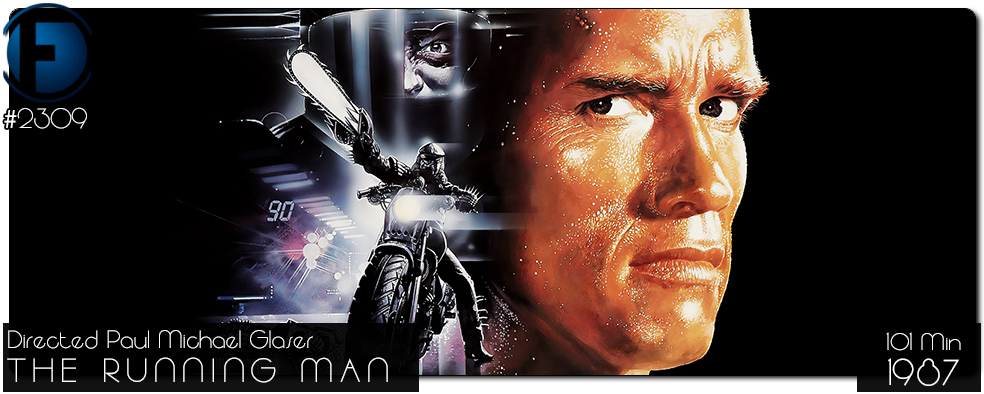Movie Review – Running Man, The (1987)
Principal Cast : Arnold Schwarzenegger, Richard Dawson, Maria Conchita Alonso, Jesse Ventura, Yaphet Kotto, Jim Brown, Erland Van Ludth, Marvin J McIntyre, Gus Rethwisch, Professor Toru Tanaka, Mick Fleetwood, Dweezil Zappa, Karen Leigh Hopkins, Sven Thorsen, Edward Bunker.
Synopsis: In a dystopian America, a falsely convicted policeman gets his shot at freedom when he must forcibly participate in a TV game show where convicts, runners, must battle killers for their freedom.
********
Endlessly quotable, formidably dynamic, the classic Arnold Schwarzenegger sci-fi actioner The Running Man has aged quite brilliantly for a film approaching forty. A blistering evisceration of American entertainment culture as a soulless, hype-train of death and carnage, Paul Michael Glaser ain’t Verhoeven or McTiernan but I would posit he’s arguably in similar rarefied air with this adaptation of Stephen King’s popular story. Arnie’s 80’s output was practically an open cheque-book for producers, studios and directors looking to grab the gravy train of the Austrian Oak’s runaway success as an action hero. From his breakout turn in The Terminator, to follow-up square-jawed turns in Commando, Raw Deal, and perhaps his greatest film, Predator, Arnie was running hot by the time this dystopian sci-fi flick arrived hot on the heels of his tete-a-tete with “one ugly muddafucker”, The Running Man arriving in November 1997 and capitalising on the American holiday season. And while The Running Man feels like a nascent prototype action flick to, say, Die Hard a few years later, there’s a withering social commentary and complex subtext at work here that belies the crass violence, sassy action and wink-wink quips as the superstar lays waste to the various bad guys who come up against him.
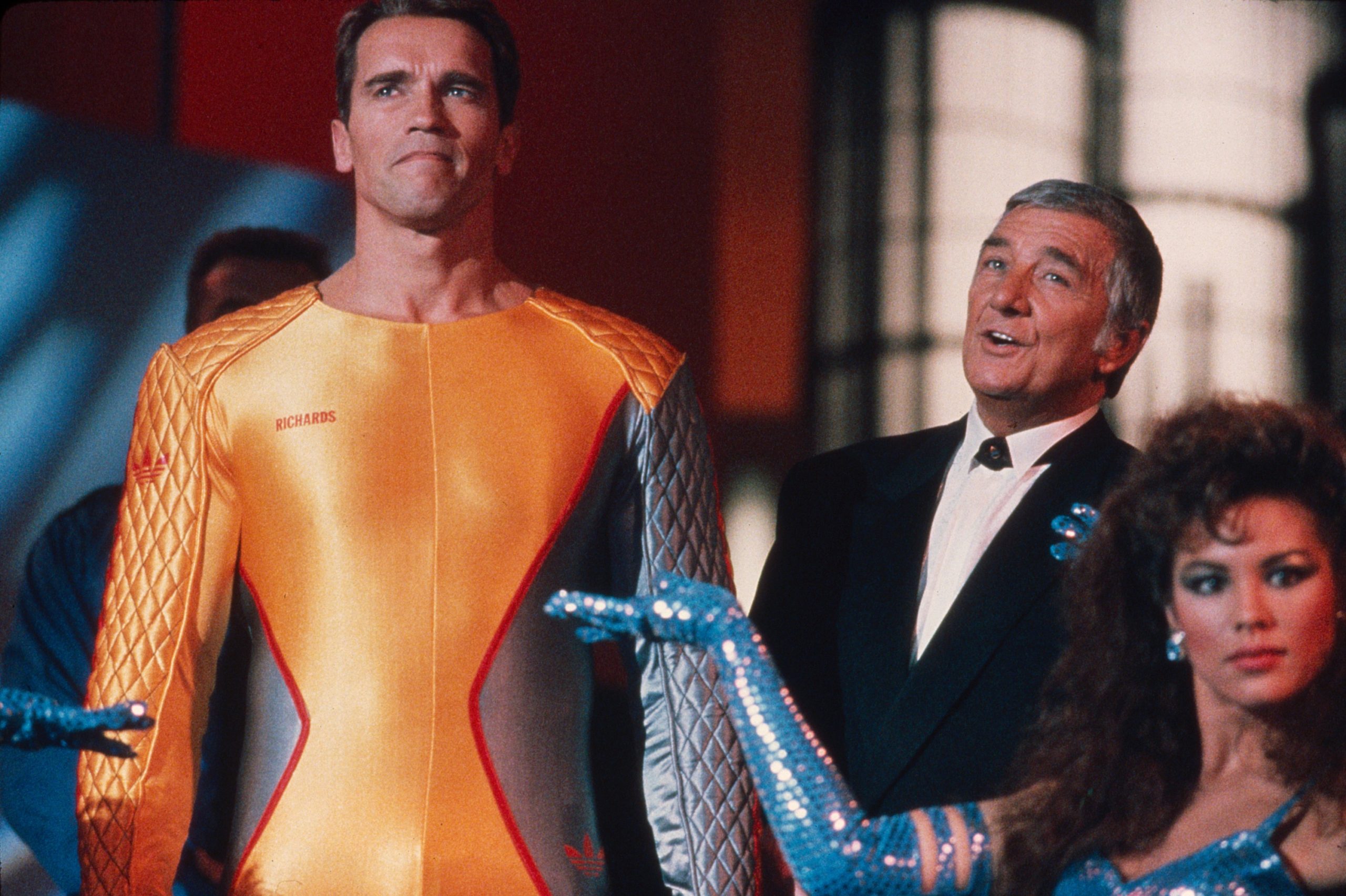
In a brutalist police state version of the United States in 2017, police helicopter pilot Ben Richards (Schwarzenegger) defies orders to fire on a crowd of rioting food protestors, and is subsequently sent to work off his “crime” in a hard labour prison. While there, he executes a successful escape, alongside the rebellious William Laughlin (Yaphet Kotto) and Harold Weiss (Marvin J McIntyre), before he is captured again following a kidnapping of Amber Mendez (Maria Conchita Alonso), an employee of the country’s only remaining television station, ICS. The head of ICS is the cruel Damon Killlian (Richard Dawson), who hosts a nationally broadcast show called “The Running Man”, in which a series of unwilling contestant attempt to thread their way through the ruined former city of Los Angeles, pursued by a cohort of violent “stalkers”, assassins using the show as sport for ratings and to misdirect public attention away from the Government’s fascist regime. Richards is thrust into the show against his will, with Mendez following suit after she realises that Richards is innocent, and together they must fight the various stalkers as they attack, to try and make it to the safety of a hidden resistance cache.
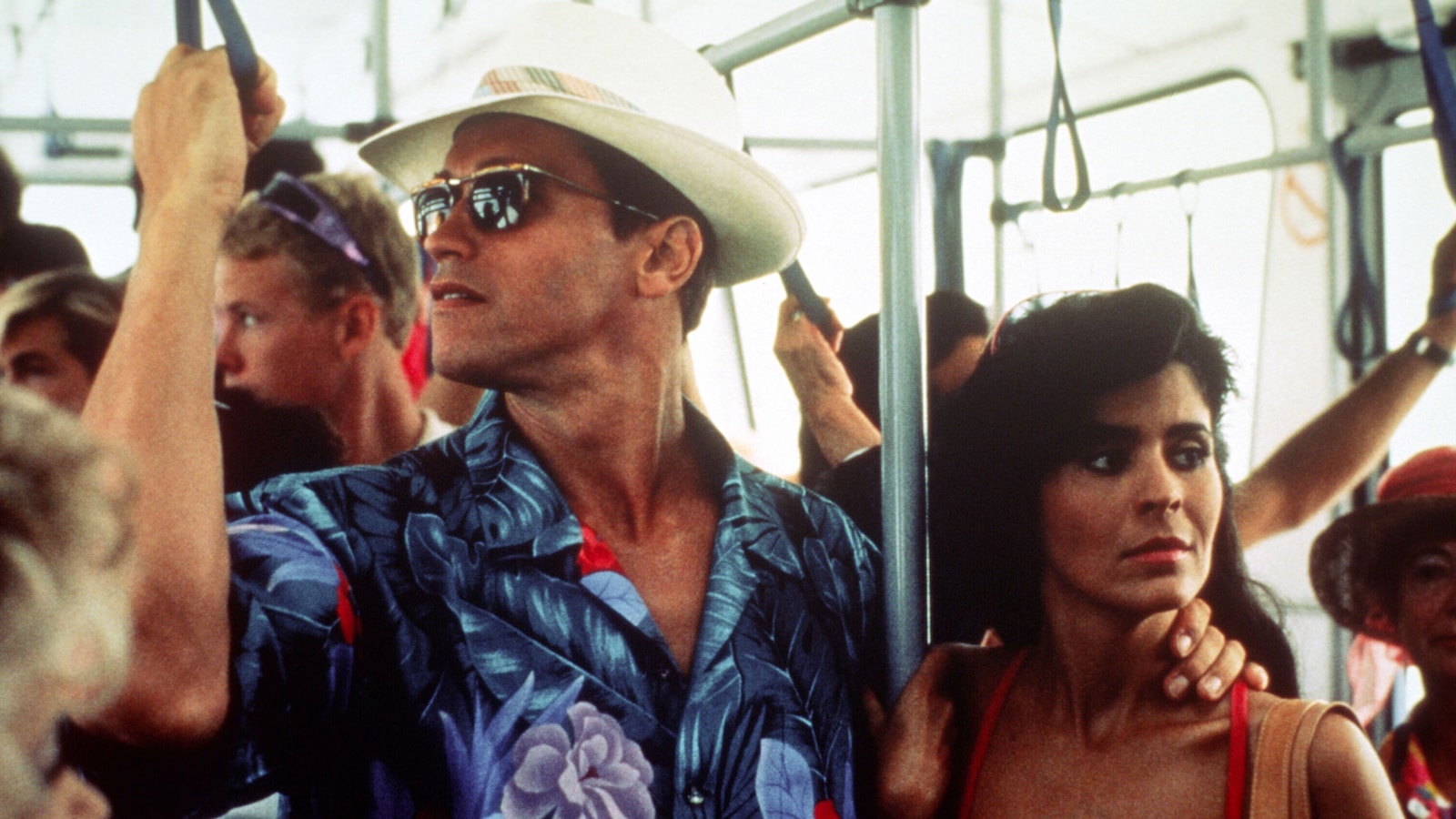
The Running Man is a fairly intriguing product of its time. While ostensibly a bombastic Schwarzenegger actioner, with plenty of violence and adult themes, the fact it also boasts a number of musical legends in its ranks is nothing short of astonishing. Fleetwood Mac stalwart Mick Fleetwood pops up as a geriatric resistance fighter, and Frank Zappa’s son Dweezil appears as a resistance soldier in a minor role, while noted American criminal-turned-writer Eddie Bunker, and Spongebob Squarepants alum Rodger Bumpass, also make cameo appearances. This is quite the eclectic ensemble assembled by the production a production I should note includes journeyman director Rob Cohen (DragonHeart, The Fast & The Furious) among the producers, and Harold Faltermeyer (Beverley Hills Cop) as the composer of the synth score accompaniment. So while you’re thinking the film is all about Arnie kicking Killian’s ass – and it is, and he does – there’s a real esoteric tone behind the camera as well.
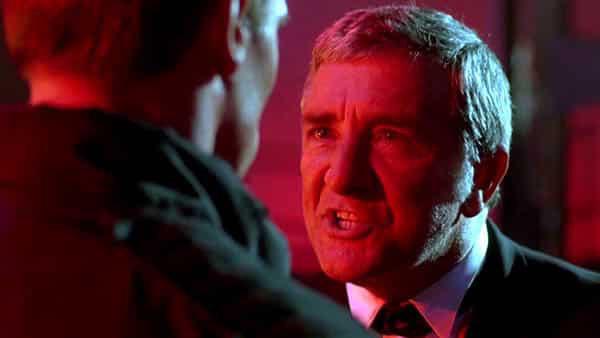
I remember seeing this film on free-to-air broadcast television back in the day as a youngster, and although edited to hell it was still a raucous piece of adult entertainment, even for my delicate mind. Arnie laying down one-liners as he dispatched a variety of garish nonsense henchmen? Check. Accompanied by a sexy as hell female co-star? Check, again. Overly violent, ridiculously plotted and filled with logic holes so wide you could fly a choppah into them? Absolutely rolled-gold check. The Running Man, much like Predator and Commando before it, was peak 80’s Arnie schlock, a deafening orgy of excess and wanton cheese wrapping up a fairly pointed narrative on America’s penchant for increasingly violent, puerile and invasive entertainment. It’s not subtle, by today’s standards, but back in the 80’s as a kid I could only watch in horror as cheering audiences lapped up seeing people eviscerated and obliterated on live television – today, we just call that Twitter (or X, whatever it is now). Stephen King – or rather, his nom de plume Richard Bachman – notably declared the casting of Schwarzenegger as Ben Richards as “far away from the Schwarzenegger character in the movie as you can get”, stating that in his original story the character was far more circumspect, and the overall tone of the text less explosive and a lot bleaker than that represented by Glaser’s film, so strike one for the film I guess.
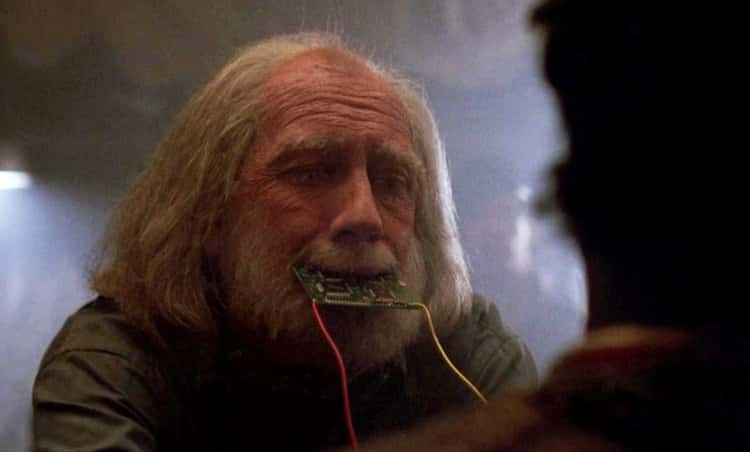
However, and this is a big however, I really like The Running Man as it is, all its commercial creative decisions intact and all. Scripted by Steven E de Souza (a titan of 80’s action filmmaking, having also written 48 Hours, Commando, and Die Hard) the film is a mish-mash of action and absurdity, the televisual aspect of “The Running Man” show a cruel and vituperous gladiatorial sport biased heavily in favour of the production – the participants thrown literally to the wolves (ie the stalkers) never really have a chance. It’s an interesting commentary of television of the day, pushing the boundary of good taste and asking America, and us, the viewer, whether or not we want a society that would so dehumanise others as to make live-streamed death in our loungerooms something palatable. de Souza injects Arnie’s trademark action-hero wit in at every opportunity, often crassly adjacent to some characters untimely demise, and although there’s a real sense of fakeness to the Ben Richards character here you get the sense that had the role gone to an actor of subtlety or nuance this might have been a very different film indeed.

While Arnie is plainly doing his usual action hero shtick, the film’s heavy lifting is performed not by one of the supporting Good Guy actors, but rather the enigmatic and odious Richard Dawson, as Killian. Dawson had come off a decade-long hosting stint on Family Feud in 1985, so the American audience of the day would have found it hilarious to see him stepping back into a similar role again, if only as a scheming, slimy shitbag villain. To his credit, Dawson doesn’t phone it in, giving Killian a real vibrancy and snakelike charm, personified later in the film as the tables start to turn on him and Richards gains the upper hand. Of all the film villains I loved in Arnold’s films back in the day, Killian was my favourite, only because he had no powers and was vastly different to the usual muscular gun-toting type Arnie would typically take on – Killian used his brain, and had to out-think the good guys to win. Different, and possibly far more formidable.
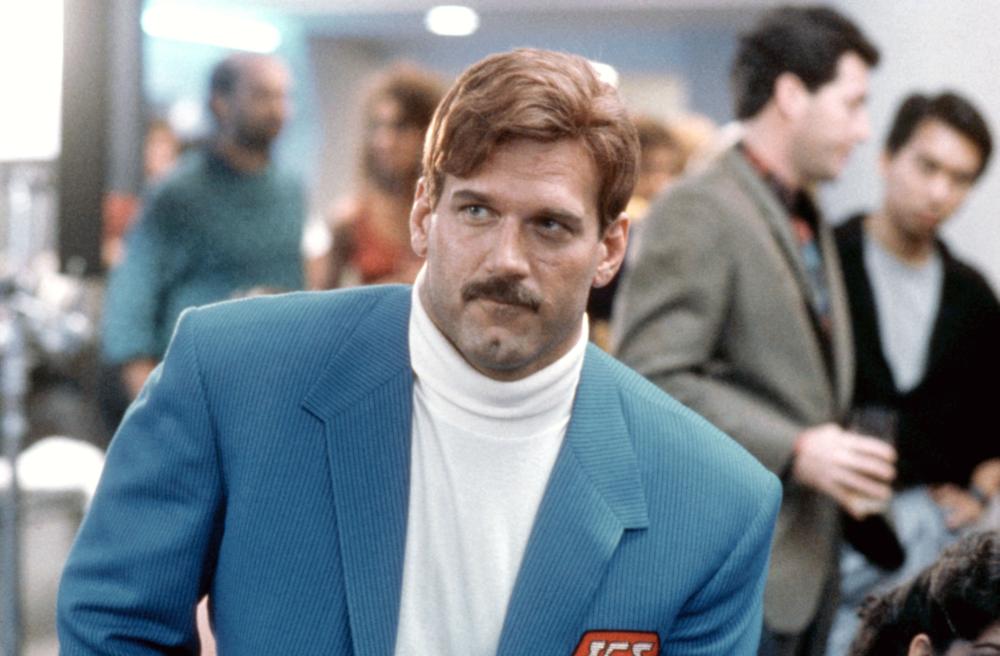
In The Running Man, Maria Conchita Alonso plays Arnie’s love-interest slash female co-star, in line with almost every other film he appeared in during the 80’s doing a similar thing. Casting minority ethnic female co-stars in his projects had been a long-standing tradition for Schwarzenegger’s movies: Chinese-Black-Cherokee descent actress Rae Dawn Chong in Commando, Mexican actress Elpidia Carrillo in Predator, Puerto Rican-descent actress Rachel Ticotin in Total Recall, and Maria Alonso here make a fine quartet of ethnically diverse leading ladies at a time when diversity wasn’t the buzzword it is today, and I always admired the filmmakers of these projects for actively making these choices. Also popping in as part of the film’s wider ensemble is big names like Yaphet Kotto, as one of Richards’ fellow prisoners, Predator co-star Jesse Ventura as one of the show’s stalkers, Captain Freedom (lol), and legendary NFL fullback Jim Brown, while “I know that face” players like Kurt Fuller, as one of Killian’s underlings, Karen Leigh Hopkins, and Marvin J McIntyre are interspersed through the movie.
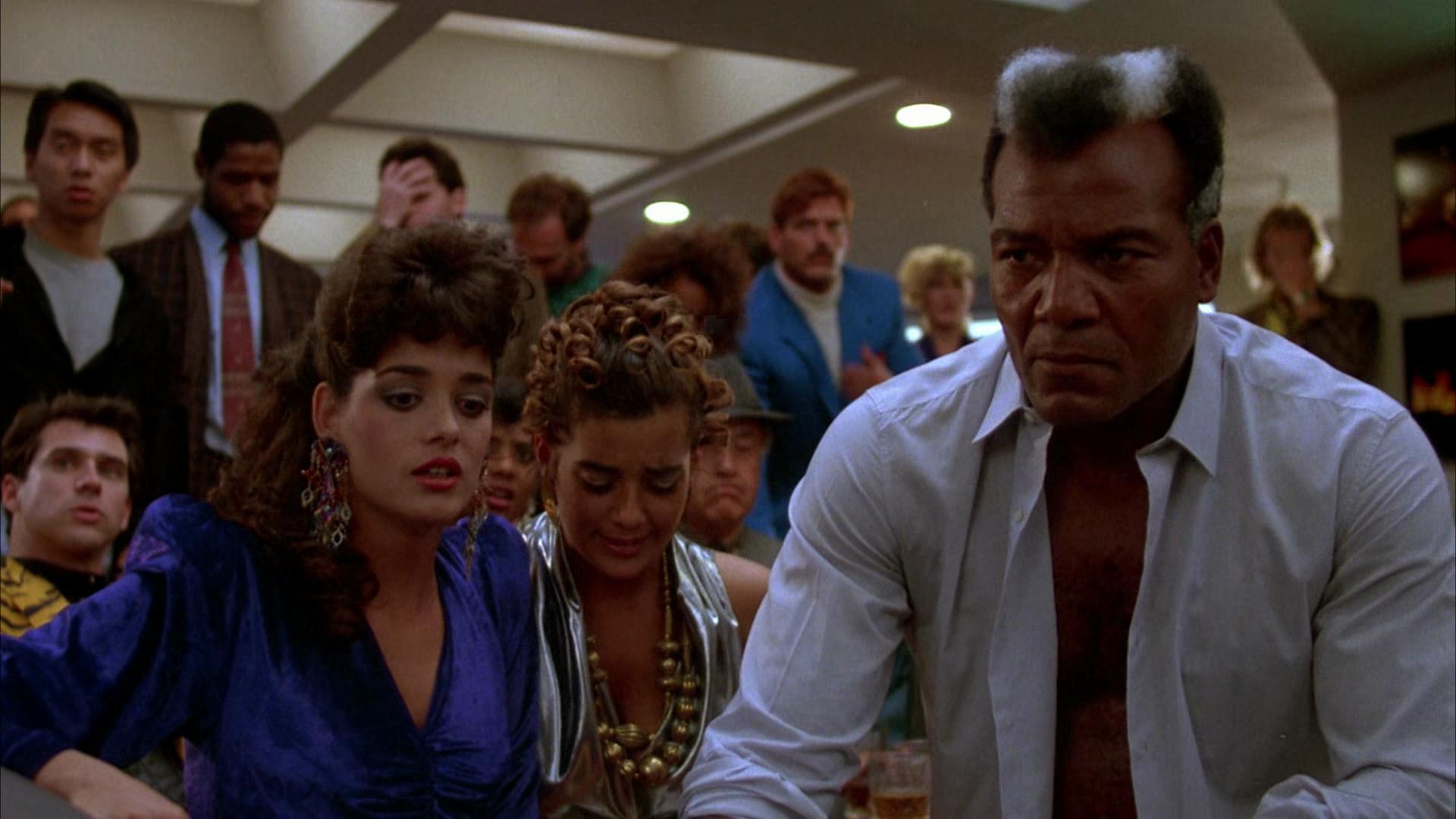
In terms of production value, The Running Man looks and sounds fantastic even today; the practical stunt work, the excellent set design and location shooting, the lighting and cinematography, heck even the editing of the action sequences and the underground capsule chute scenes as contetstant are injected into the “Running Man” arena, is all first rate. Notably, the film offers very few rear-projection or computer graphic effects that date the movie – I mean, there’s a couple, but nothing that really pulls you out of the film in any annoying way – and with almost everything seemingly practical or set-extensions The Running Man maintains its visceral, dystopian thrills throughout. I did have a bit of a hard time swallowing Harold Faltermeyer’s electronic score, as I felt it too be too sinewy and… what’s the opposite of robust? Whatever that word is, Faltermeyer’s work here was insufficient for the accompanying action, and felt very generic. A brief interlude with a Faltermeyer-ised take on “The Ride of The Valkyrie” was welcome but too short-lived. Otherwise, however, The Running Man’s visual acumen and execution of building this near-future (or, today, present-adjacent) world of a catastrophised United States is exemplary.
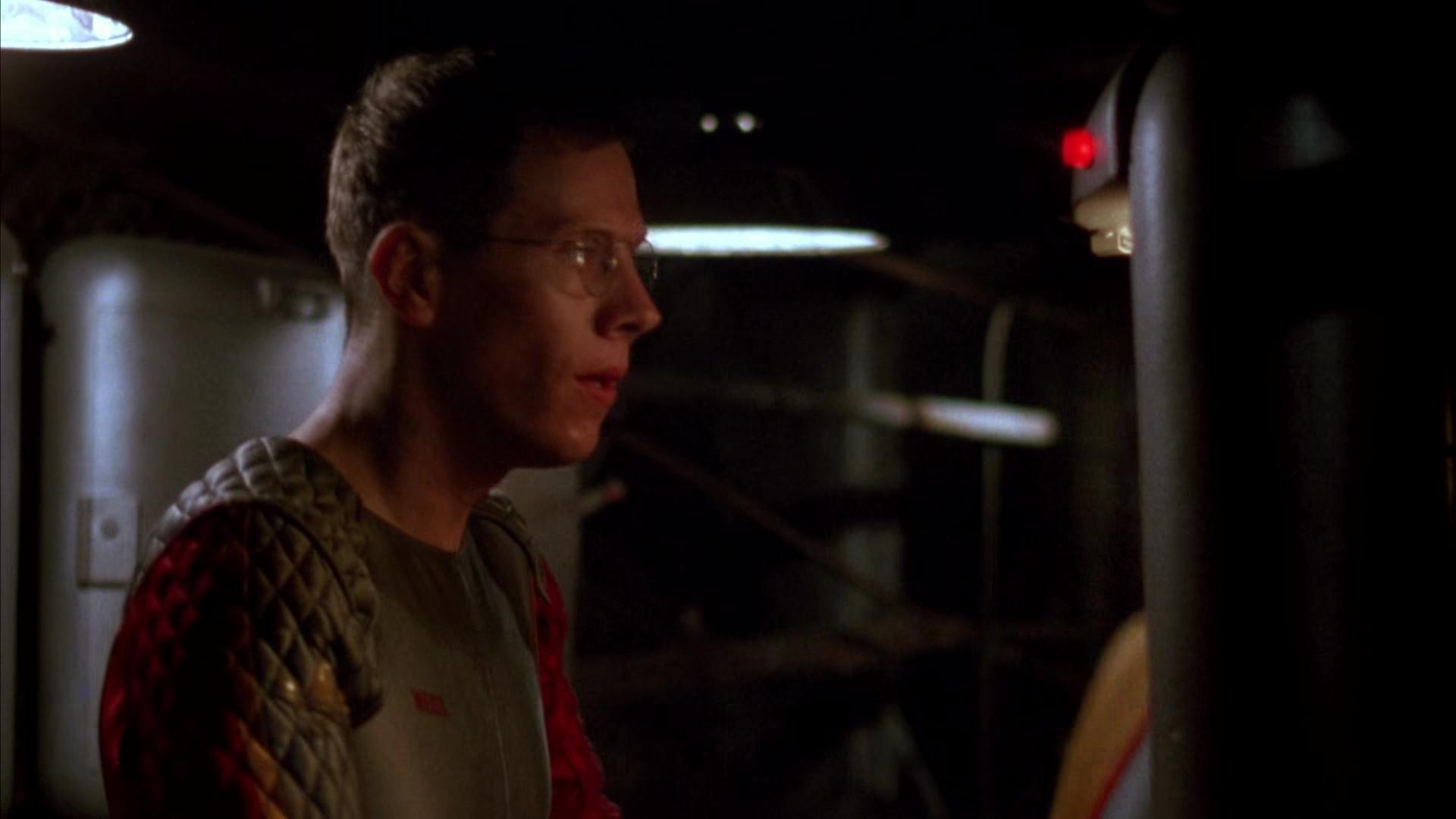
The Running Man should not be underestimated alongside the list of Schwarzenegger classics. Okay, so it’s no Predator or Total Recall, but it’s close, and it delivers maximum Arnie carnage and humour while forcing us to confront eternal ideas of just how we present and consume our pop culture. The fact that the film’s violence is suggestive itself of the nature of the show within it, is perhaps the largest intended irony of all, and I would expect most of the people who watch this one would miss that. The fact the film hasn’t really dated at all is also somewhat worrying as much as it a pleasant surprise. Being able to take in the film’s setting and never once think “oh they filmed that over on Fifth Avenue” or something is often hard with 80’s action films but The Running Man’s dedication to its own production is brilliant. With a punchy de Souza script, hugely capable action direction from Paul Michael Glaser and (yet again) a terrific Arnold Schwarzenegger action performance at the peak of his popularity, The Running Man is a legitimate classic of the genre and a partially forgotten gem from the period.

